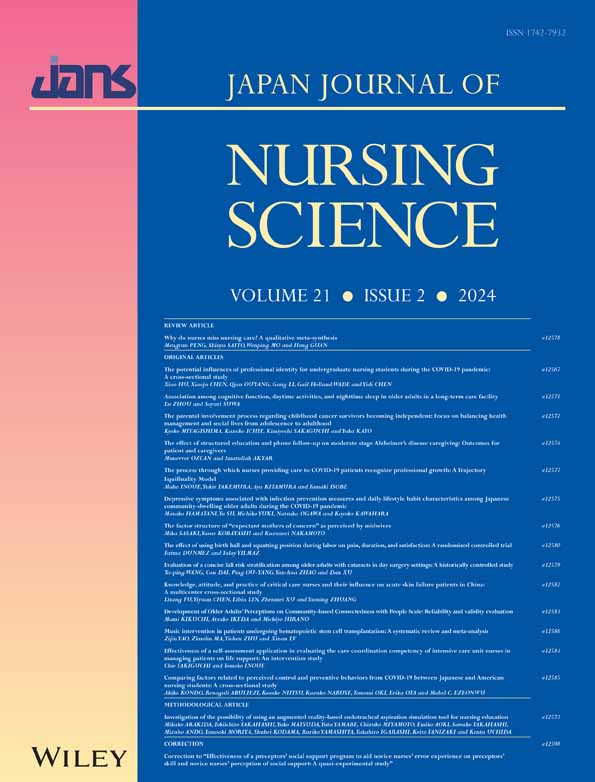Music intervention in patients undergoing hematopoietic stem cell transplantation: A systematic review and meta-analysis
Abstract
Aims
To explore whether music intervention improves the quality of life (QOL) of patients undergoing hematopoietic stem cell transplantation (HSCT) and to evaluate its impact on patients' symptoms of depression/anxiety and fatigue.
Methods
This systematic review and meta-analysis was conducted in accordance with the Preferred Reporting Items of Systematic reviews and Meta-Analyses (PRISMA) guidelines. The databases PubMed, Cochrane CENTRAL, and EMBASE were searched from inception to September 30, 2022. The search strategy used a combination of the keywords “music” and “hematopoietic stem cell transplantation” or “HSCT.” The outcomes assessed were QOL, depression and anxiety, and fatigue. Pooled standardized mean differences with 95% confidence intervals were calculated to compare the outcomes between the music intervention and control groups. Heterogeneity across the studies was assessed using a chi-square-based test, and the I2 and Q statistics.
Results
Meta-analysis of the included study population showed that music intervention for patients undergoing HSCT was associated with patients' improved QOL, and resulted in reduced depression/anxiety and fatigue compared to patients without music intervention.
Conclusion
Music intervention benefits HSCT outcomes, including better QOL, less depression/anxiety, and less fatigue postoperatively. Future trials with larger samples are still warranted to strengthen the evidence supporting the benefits of music intervention in this patient population.
CONFLICT OF INTEREST STATEMENT
The authors declare that there are no conflicts of interest.
Open Research
DATA AVAILABILITY STATEMENT
All data relevant to the study are included in the article.




